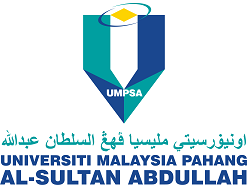Synthesis and Characterization of Electrospun Fiber from Polyethylene Terephthalate Bottle Waste
DOI:
https://doi.org/10.15282/cst.v3i1.9810Keywords:
Circular economy, Plastic bottle, Recycle technology, NanomaterialAbstract
Polyethylene terephthalate (PET) is the most recyclable plastic used for daily applications and the waste, especially from packaging, posed a significant environmental challenge. Inappropriate handling and disposal of plastic waste caused a majority of pollution, including microplastics. To address this issue, PET were chosen for recycling process. Electrospinning was employed to transform plastic waste into nanofibers. In this work, PET was successfully dissolved and electrospun. The electrospun fibers were characterized using FESEM, XRD, FTIR, TGA, and tensile techniques. Overall, this research aimed to transform plastic waste into new materials with various future potential applications, contributing to waste reduction and sustainability.
Downloads
Published
Issue
Section
License
Copyright (c) 2024 The Author(s)

This work is licensed under a Creative Commons Attribution-NonCommercial 4.0 International License.



